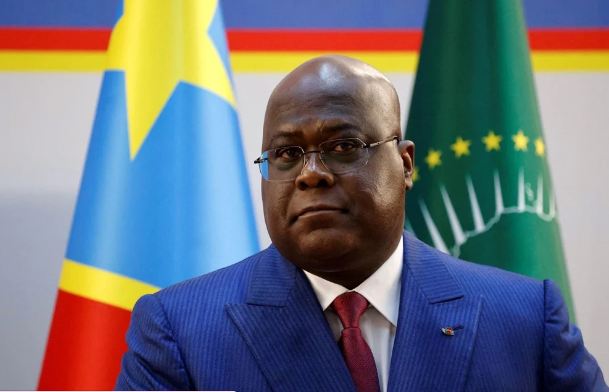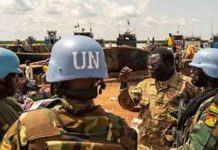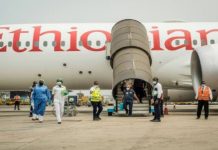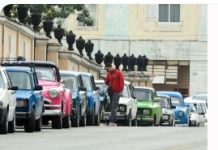A five-person core team of experts from France, Mali, Spain and Switzerland is now in Kinshasa in the Democratic Republic of the Congo (DRC), as the advance party for The Carter Center’s Election Observer Mission.
The DRC is due to hold general elections on 20 December, where incumbent Felix Tshisekedi of the Union for Democracy and Social Progress (UDPS), the country’s oldest and largest party, will be seeking re-election.
The Carter Center said the five experts would be joined by 20 long-term observers sometime in October.
Thereafter, a few weeks before the polls, “a high-level leadership delegation” would also join the mission.
The Carter Center’s International Election Observation Mission director, Nicolas Teindas, said they planned to provide “an independent and impartial assessment of the electoral process”.
The Carter Center has monitored 115 elections in 40 different countries.
It carries out its election observation activities in accordance with the 2005 Declaration of Principles for International Election Observation and bases its evaluations on national legal frameworks, regional election commitments, and global election observation standards.
Along the way, it has also met with hostilities, most recently in Zimbabwe, where the government accused it and other observers from the European Union, Commonwealth and SADC of overstepping their mandate and being “anti-government agents”.
Repression in the DRC
The official presidential campaigns in the DRC are set to start on 19 November.
But well ahead of that, Human Rights Watch (HRW) has documented numerous cases of intimidation of opposition candidates.
Thomas Fessy, senior Congo researcher at HRW, said:
“The Congolese authorities’ recent wave of arrests and restrictions on fundamental liberties is targeting opposition presidential candidates and their top officials. The government should urgently ensure that opposition candidates, their supporters, and all Congolese are freely able to express their views and hold peaceful demonstrations ahead of the December election.”
DR Congo calls for swift withdrawal of UN peacekeepers
Moïse Katumbi, a businessman and leader of opposition party Ensemble pour la République (Together for the Republic) was blocked from holding meetings with his supporters in May.
Reports said the governor of Kongo Central, Guy Bandu Ndungidi, had told authorities that Katumbi was not welcome in the province.
During the same week, Katumbi and other opposition leaders – Martin Fayulu, Delly Sesanga, and Matata Ponyo – were blocked from leading a sit-in at the offices of the National Independent Electoral Commission over what they called a chaotic run-up to the elections.
The most prominent of the repression drives was the sentencing of Jean-Marc Kabund to seven years in prison for “insulting the head of state”. His sentence was longer than the three years requested by the prosecution.
Marc Kabund is a deputy and former vice president of the National Assembly. In July last year, he announced that he would challenge Tshisekedi, whom he had worked with, to earn his first presidential term.

















